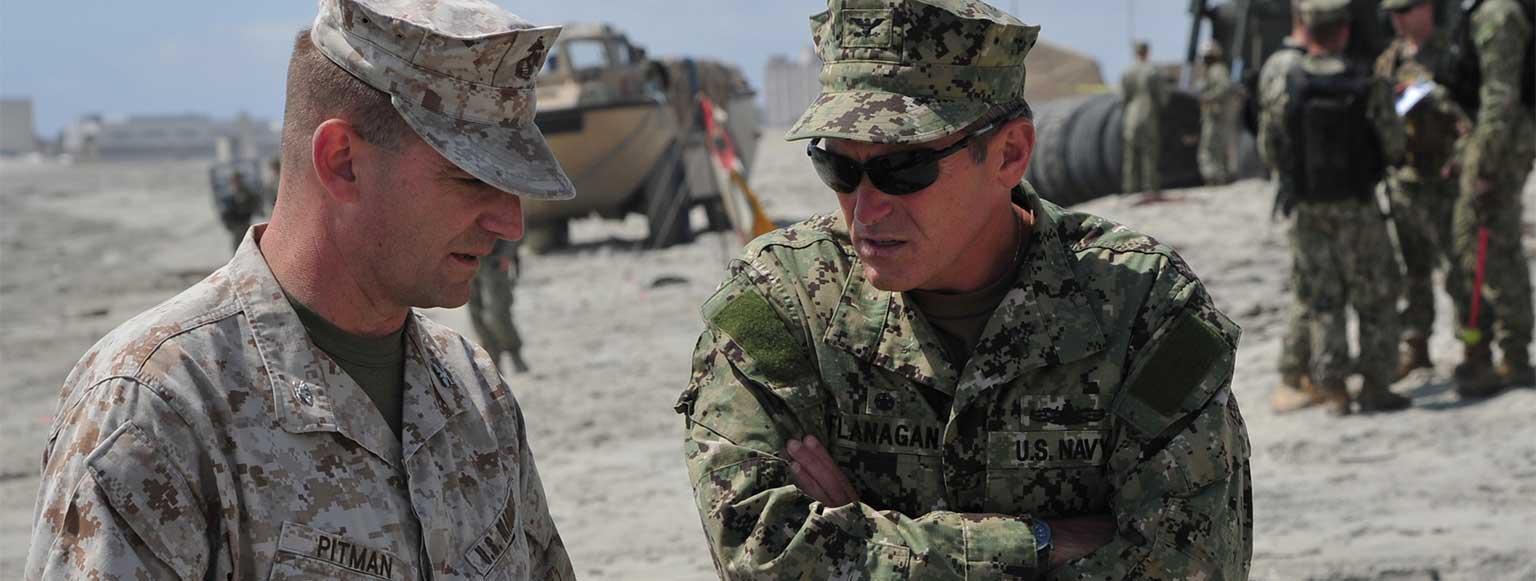Principles and Traits of Marine Corps Leadership, Part 4

Last month, we considered the Marine Corps leadership principle of knowing one’s people and looking out for their welfare. The next principle, keep your Marine personnel informed, is an extension of this, and it presents to us the interesting task of defining what is meant by being “informed.” In the discipline of biomedical ethics, the approach to defining the principle of informed consent to medical treatment begins by considering what it means to be informed about something sufficiently to give consent that is not compromised by misunderstanding. One cannot genuinely consent to a procedure one doesn’t understand in this way. The idea is not that a patient understands a procedure with the practical and theoretical comprehension of a physician, but that he understands a procedure well enough to be able competently to evaluate risks and benefits. Similarly, people in an organization need to be informed about a mission or goal, and the steps deemed necessary to the task, so they can perform their work efficiently and effectively. The Latin noun informationis identifies a concept or idea. The verb informare may apply to things, as when a sculptor “informs” his medium, imposing on it the shape he desires to produce. When applied to minds, it means to form, dispose, or to form an idea or conception of something. Implicit in the idea of informing someone is to produce understanding. When this is done well, it serves the welfare of everyone in an organization.
We read that “teams that are well-informed and maintain strong communication are much more likely to thrive. For this reason, it’s impossible to build confidence and trust without first developing strong communication.” What do we mean by “communication”? Being informed is the goal of effective communication, and so if to be informed is to understand, then the goal of a communicator is to produce understanding in those to whom he is communicating. Moreover, the principle we are presently considering holds that “strong communication” is required if there is to be confidence and trust within an organization. It seems reasonable to think that “strong” communication occurs when there is an atmosphere of openness to questions raised by members of a unit or organization and suggestions for improving what they do.
Central to good communication is honesty, which is the determination always to tell the truth as one knows it. “Honesty” is expressed this way because it is possible to be wrong on one point or another and the error is genuine in the sense that it is an “honest mistake.” We understand this in recognizing the difference between a mistake and a lie, and we rightly regard the mistaken fellow differently than we do the liar. So, it is important always to be honest with others, and also to be ready to correct oneself when it is clear that one is mistaken. In this way, an atmosphere of trust is established because each member of a team knows that the others are reliable and so their statements can be taken seriously. A conversation, in its simplest form, is an exchange between two people in which each participant speaks honestly and listens carefully. When people are communicating, even in organizations needing a high degree of discipline like the Marine Corps, there must be room for clarifying questions since it is possible, however precise one seeks to be, to be misunderstood, or to be have confused others. This is the paradigm of good communication, and its dynamic should hold among more than two people, when using communications technologies of one kind or another when people are not physically together, and when people are communicating under difficult conditions like emergencies and combat.
Thus far, what has been under consideration is not simply how people may communicate effectively, but also the intent with which they do it. However, does this general consideration describe an approach to communication that fits the operation of every kind of organization regardless of mission? For example, how much information do members of an organization have a serious claim to? It seems that this will depend on the organization and its mission. If we think of someone in a job that requires a security clearance, that person should understand that he has no “right” to classified information that is above the level of his clearance. He should understand also that he is obliged not to communicate information within the level of his security clearance to people below that level of clearance, and all should understand that this approach to security is no cause of distrust since this process serves the mission, and we communicate freely within these boundaries. Harm is done to trust in an organization when people believe they are purposefully being “kept in the dark” without cause, since this conveys to people that their leaders do not respect them either personally or professionally. On the other hand, leaders who are committed to keeping their team members informed and to creating an environment of open communication will be rewarded with dedication and loyalty within their organizations.
In the leadership trait of initiative, we read in one source: “Taking initiative requires one to take an action or seize an opportunity before others do.” [i] Examples of initiative could be as mundane as “noticing that the trash is overflowing in the office and taking it out before being told. Or if your unit is struggling in a certain area of training, it could be organizing a PME [professional military education] to increase proficiency before higher command requires it.” [ii] This is a concise and useful understanding of initiative, and it shares in common with the leadership principles of knowing yourself and seeking self-improvement and being technically and tactically proficient, that one should be attentive and observant both to his surroundings and to his personal and professional development.
[i] Gunnery Sergeant Joshua Owen, “Good Judgment Must Precede Initiative,” website of the U.S. Naval Institute, October 2022.
[ii] Ibid.


